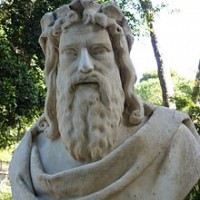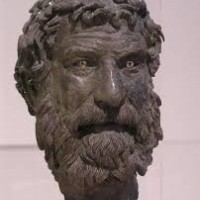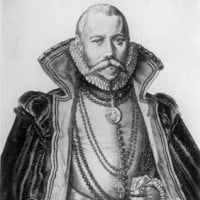Top Ten Most Bizarre Deaths in History
In rare cases, people sometimes die from extremely unusual cases, and it's not only dying from laughter. Here are some known cases of bizarre deaths in history.There's a famous story told around in 456 BC saying that Aeschylus died because of an eagle dropped a tortoise impacting his head. Eagles often drop tortoises on hard objects in order to crack them for edible use, and the eagle mistaken Aeschylus's head as a rock.
I bet people told him that he was hard-headed, and what do you know?

Back around the 5th BC of Ancient Greek. Charondas has established a law that whoever had brought weapons onto the assembly must be executed. Some day after, he went to the same place unaware that he still had a sword that was attached to his belt. And so, under his own law, he killed himself.

There are people that are obsessed to correcting grammar, and Philitas of Cos, known for his paranoia and obsession of correction of errors, takes it to the next level. Apparently, he tried to polish his knowledge of word errors and arguments so hard to the point that he starved himself to death.
When Claudius Drusus was playing, he threw a pear skywards, and as it returned, he caught it inside his mouth and apparently choked on it accidentally and died from lack of oxygen.
Ah. The classic bizarre way of succumbing to death; laughter. Although the reason of his death is vague and lacking in evidence, rumors say that he died of laughter in around 1410 AD while suffering from indigestion. The cause of his indigestion is that he had ate an entire goose that might've been musty.
Also known as the King of Sweden c. February 12 1771, died to stomach problems when he ate a large set of meals of lobster and 14 servings of semla desserts, (a sweet tasting roll from Sweden)
Someone in Russia died, this is why.
A recent piece of evidence shows that back in August 22 1888, meteorites sprinkled the sky in Iraq, killing one man from one of the meteorites. Apparently, another person was also struck, but that only left them paralyzed. This is the only confirmed evidence of a person being killed by a meteorite.
That's funny too yet fascinating at the same time.
This was a known logician and mathematician (also known of his paranoid personality) who feared being served by other people other than his wife since he was extremely paranoid of getting poisoned. During when his wife was sent into a hospital for more than several months, Kurt Godel eventually died of starvation due to his fear.
Why couldn't he cool his own food?
Robert Williams (not the basketball player) but a factory worker who worked in an assembly plant, was the first documented person to be crushed and killed by a robot's arm when he climbed into a storage rack.
In around the 15th century, Hans Staininger who was a burgomaster of Braunau, stumbled on his own beard and died from breaking his neck.
Amazing. Some idiot managed to turn their own beard into a lethal weapon.
While the exact death cause of Heraclitus is not exactly known, multiple sources however say that he has either committed suicide, devoured by dogs, or died from dropsy.

Hold your pee for long enough, then you might end up rupturing your bladder which results in not being able to empty your bladder afterwards. People usually do not die from a bladder rupture; it's only a very slim chance, if not impossible (you are most likely to excrete your urine anyway before rupturing your bladder). Unfortunately (according to rumors), this is the perfect case example for Brahe - Brahe succumbed to his death while trying to control his bladder, as well as the sickness contributing to it (although that might not be case). The reason why Brahe decided to hold his bladder is that he didn't want to break his own politeness to the people on a banquet party, and thus that may have lead to the difficulty of Brahe emptying his bladder later on. A few days later after that incident, Brahe died later due to his bladder being burst according to rumors (studies say otherwise, stating that he died from either inflammation, poisoning, or natural causes, other from bladder rupture), but since his death happened over 400 years ago, there is no exact cause of his death, and therefore his case dying from a "bladder burst" is a myth after all.
Happened in 375, Romans built fortifications stretching near the Quadi territory in 373; the tribe was not happy for the trespassing of the romans, so they started a protest. When Marcellianus set up a banquet to negotiate with the Quadic leaders, Marcellianus killed them which started a war between the Quadi tribe along with the Samartians. This conflict was met with roman legions who poorly performed in countering the ravaging tribes. It was only late 374 when Valentinian heard about the news regarding the conflict, but did not take consideration of Marcellianus' misdeeds, so he took action by punishing the Quadi
When he arrived at Brigetio during a campaign he was informed that the cause of the conflict was rooted on building fortifications in their lands. This made Valentinian so furious to the point that he died of a stroke while screaming at the envoys due to his frenzy fit